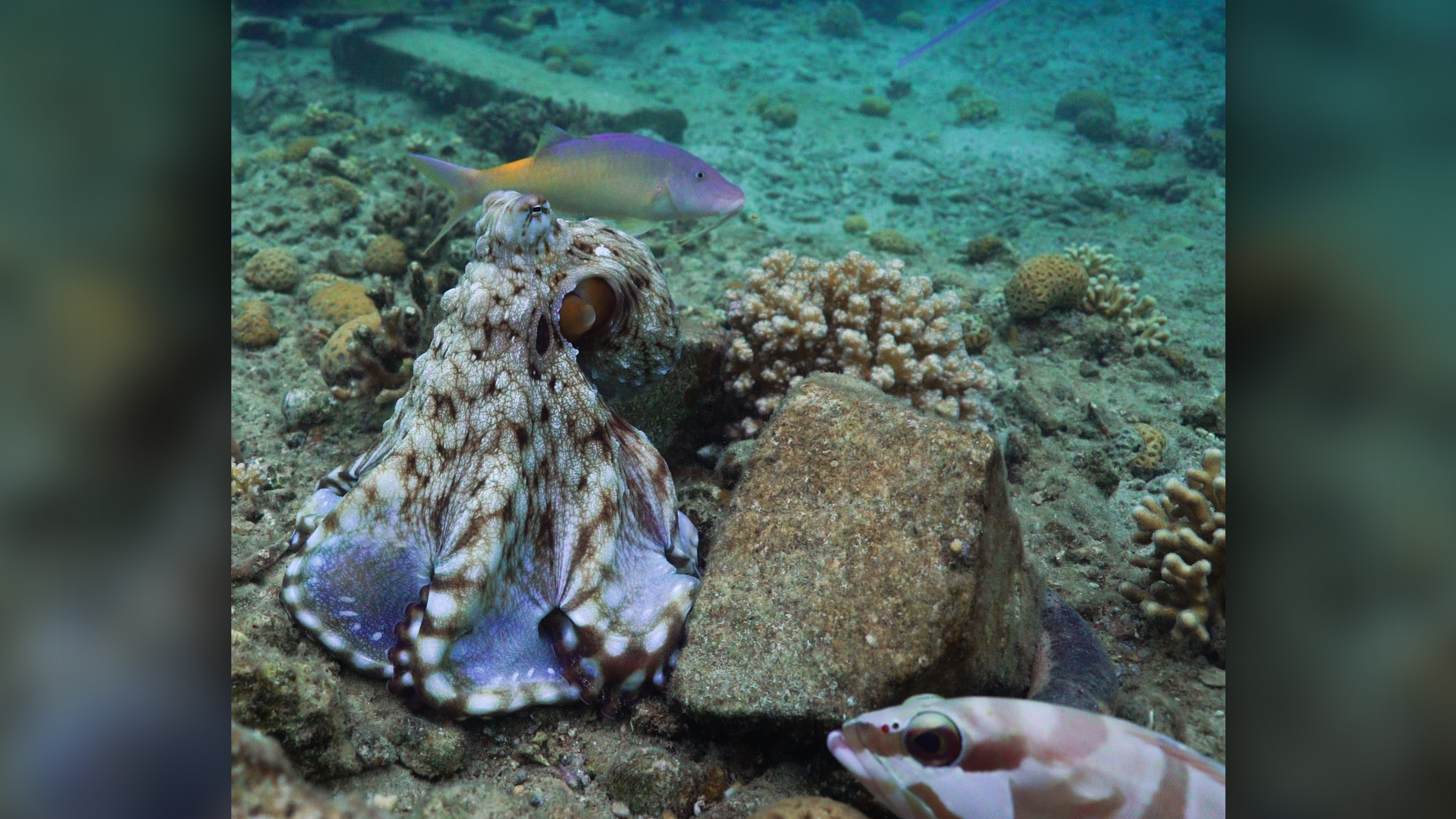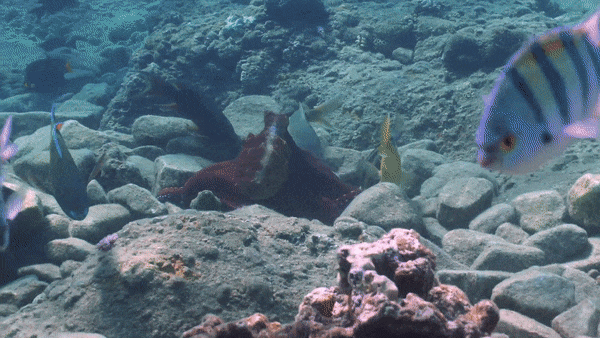Octopus punches fish in the head (just because it can)
Collaborating with a cephalopod isn't risk-free.

Get the world’s most fascinating discoveries delivered straight to your inbox.
You are now subscribed
Your newsletter sign-up was successful
Want to add more newsletters?

Delivered Daily
Daily Newsletter
Sign up for the latest discoveries, groundbreaking research and fascinating breakthroughs that impact you and the wider world direct to your inbox.

Once a week
Life's Little Mysteries
Feed your curiosity with an exclusive mystery every week, solved with science and delivered direct to your inbox before it's seen anywhere else.

Once a week
How It Works
Sign up to our free science & technology newsletter for your weekly fix of fascinating articles, quick quizzes, amazing images, and more

Delivered daily
Space.com Newsletter
Breaking space news, the latest updates on rocket launches, skywatching events and more!

Once a month
Watch This Space
Sign up to our monthly entertainment newsletter to keep up with all our coverage of the latest sci-fi and space movies, tv shows, games and books.

Once a week
Night Sky This Week
Discover this week's must-see night sky events, moon phases, and stunning astrophotos. Sign up for our skywatching newsletter and explore the universe with us!
Join the club
Get full access to premium articles, exclusive features and a growing list of member rewards.
Why do octopuses have eight arms? The better to punch fish with, new research reveals.
These brainy cephalopods sometimes team up with fish to find food; hunting collaboratively like this allows them to cover more area, and it increases their chances of catching prey. However, when big blue octopuses (Octopus cyanea), also known as day octopuses, are displeased with their fish partners, they demonstrate their ire by suddenly punching the fish in the head.
The octopus lashes out using "a swift, explosive motion with one arm," in an attack "which we refer to as punching," scientists wrote in a new study.
Related: Photos: Deep-sea expedition discovers metropolis of octopuses
Temporary hunting alliances between octopuses and coral reef fish have been documented for decades and can involve multiple participants of various species, the study authors reported Dec. 18 in the journal Ecology.
Sometimes, fish and octopuses will work together for more than an hour, with different species scouting different locations. Octopuses pursue prey that dart around rocks and into tight spaces in the reef, while bottom-feeding fish such as the yellow-saddle goatfish (Parupeneus cyclostomus) scour the seafloor, and other fish species patrol the water column, according to the study.
But those collaborations don't always work out so well for the fish, the new study shows. Between 2018 and 2019, researchers observed eight incidents while diving in Eilat, Israel, and in El Quseir, Egypt, in which octopuses suddenly punched out their supposed partners.
Get the world’s most fascinating discoveries delivered straight to your inbox.
"I laughed out loud, and almost choked on my own regulator," said lead study author Eduardo Sampaio, a Ph.D. student at the University of Lisbon and the Max Planck Institute of Animal Behavior. His later reactions were more subdued, "but I still marveled at it every time I saw it," he told Live Science in an email.
"The fish would get pushed to the edge of the group, or would actually leave the group. Sometimes after a while it would return, other times it would not return at all. The octopus would leave the fish alone after displacing it," he said. Though octopuses were previously known to throw defensive punches when attacked by damselfishes or while fighting over food, this is the first time their punching has been scientifically described and linked to collaborative hunting, Sampaio said in the email.
Partners, but not friends
But why were the octopuses lashing out? While partnerships between species can be mutually beneficial, that doesn't mean that the participants are actually looking out for each other's best interests, Sampaio explained. If opportunity knocks, alliances may be discarded, and the octopus will look out for itself.
"Despite collaborating, each partner will always try to maximize its benefits," he said. "In the cases where prey is readily available, the octopus seems to use 'punching' as a way to control the partner's behavior in a self-serving way," literally knocking aside the competition to steal a tempting meal.
The scientists also recorded events where it wasn't immediately clear how the octopus benefited by smacking the fish. One possibility could be that these negative acts, while harmful to the fish, in the end cost the octopus less energy than cooperation would. Punching could also be punishment, so that the fish would then be a better partner in future collaborations, Samapio said. But these explanations are speculative, and Sampaio will need to watch many more octopus-vs.-fish knockouts to unravel what motivates an octopus to throw the first punch.
"We want to understand how the prior interactions between the two animals, in the context of the whole group, can lead to a fish getting punched — and also what changes after that event," he said. "We suspect that the main reason is related to prey opportunities, of course, because that is also the reason why these groups naturally form in the first place, given the complementary hunting strategies of the partners."
Originally published on Live Science.

Mindy Weisberger is a science journalist and author of "Rise of the Zombie Bugs: The Surprising Science of Parasitic Mind-Control" (Hopkins Press). She formerly edited for Scholastic and was a channel editor and senior writer for Live Science. She has reported on general science, covering climate change, paleontology, biology and space. Mindy studied film at Columbia University; prior to LS, she produced, wrote and directed media for the American Museum of Natural History in NYC. Her videos about dinosaurs, astrophysics, biodiversity and evolution appear in museums and science centers worldwide, earning awards such as the CINE Golden Eagle and the Communicator Award of Excellence. Her writing has also appeared in Scientific American, The Washington Post, How It Works Magazine and CNN.
 Live Science Plus
Live Science Plus











